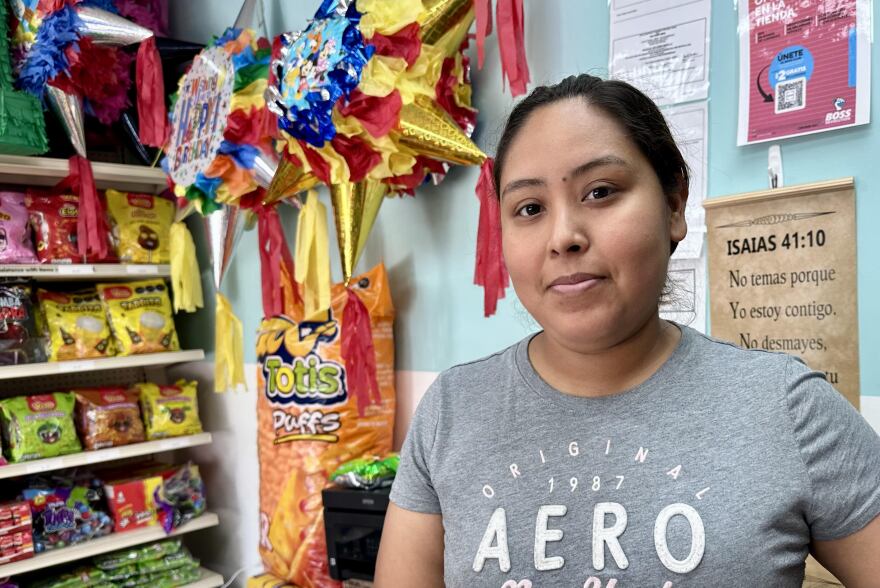Undocumented immigrants wield about $300 billion in buying power, according to the American Immigration Council. They spend a lot of it at stores along streets like Central Avenue in Kansas City, Kansas, which, until recently, made it a good place to open a small business.
“We chose the place because we saw it was a busy place,” Lucy Angle said from behind the counter of her new party supply store on Central Ave. “But right now it’s just not like we saw it. Central Avenue is really slow.”
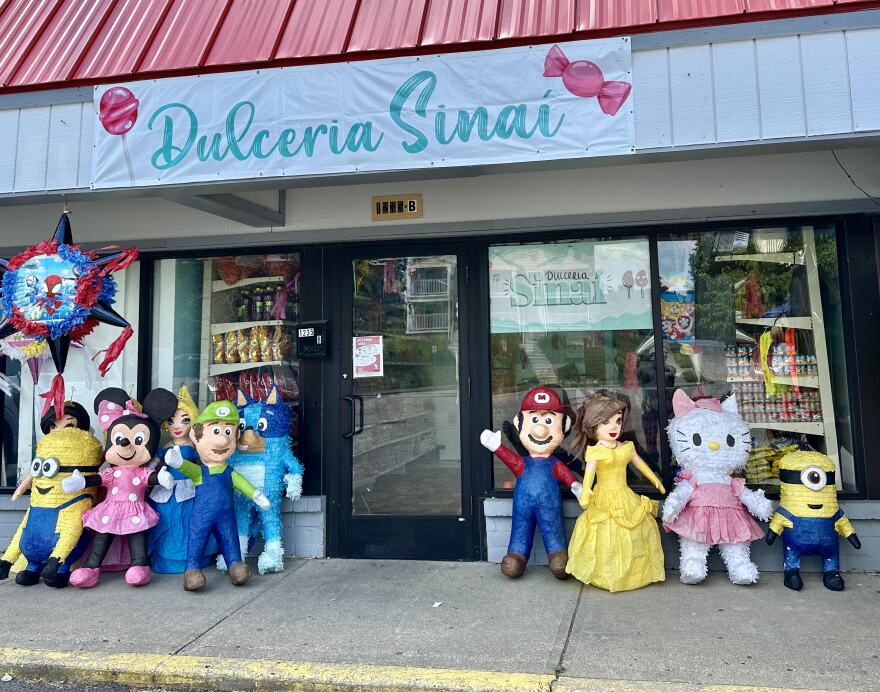
Angle’s small shop, Dulceria Sinai, is a riot of color. Huge, cheerful-looking bags of candy vie for attention with smiling, cartoon-character piñatas. The place is packed with merchandise, but the customers that Angle imagined when she decided to open the store a year ago are not here. She says the Trump Administration’s immigration crackdown traumatized her clientele.
“You can feel it,” said Angle. “And hopefully, people, they're gonna start making their parties. But they're not making anything.”
Her story is common up and down Central Avenue, said Edgar Galicia, executive director of the Central Area Betterment Association.
“All of them, all of them have reported loss in sales,” he said. ”Once the witch hunt started, everybody's afraid. Nobody wants to come out.”
Shops, restaurants, and professional offices along Central Avenue report a 30% to 60% plunge in revenue, he said.
When shoppers do venture out, they’re often confronted with higher prices, because many of the products recent immigrants buy are imported from their home countries, and now subject to tariffs.
“Right now, we feel attacked, because not only are they going after our people, they increase our prices, tariffs increase our prices,” Galicia said.
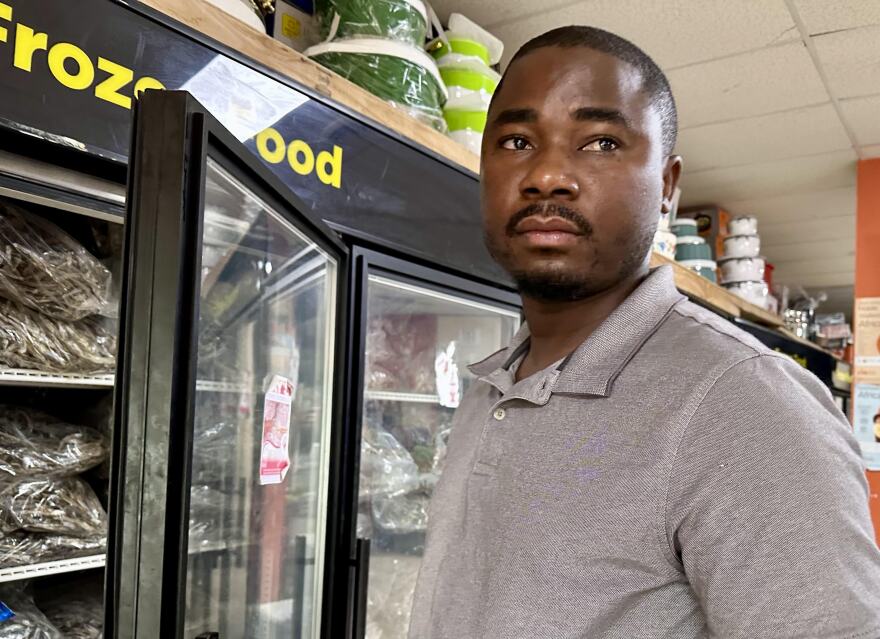
The business crisis in Kansas City, Kansas, echoes across the country, Galicia said.
“From New York to LA, from the state of Washington to Florida, up north, down south, everywhere this is happening,” Galicia said.
Big companies like Coca-Cola and Constellation Brands report that their Hispanic customers are withholding some of their $2 trillion in spending power.
“What you’re seeing here is these big companies experiencing this across lots and lots of markets at a sufficient enough level for them to put it in their shareholder statements,” said Eric Rodriguez, Senior Vice President of Latino civil rights organization Unidos US. “What happens economically to the Latino community happens to the country.”
And Latinos aren’t the only immigrant group affected.
“People are not willing to spend money, which is bad for the economy,” said Oredi Jay, an immigrant from the Democratic Republic of Congo, who runs Jay’s Restaurant and Grocery on Independence Avenue in Kansas City, Missouri.
Jay caters primarily to immigrants from central Africa. He’s watched his sales plummet by half this year, because his customers are nervous and his prices have spiked.
“American-first policies or agenda like the tariff is impacting our business negatively, for sure, since as an immigrant, as a refugee, we import a lot of food abroad,” said Jay.
The fish in freezers lining a wall of Jay’s store, for instance. A throw pillow-sized bag of dried sardines imported from Tanzania used to retail for $25. Jay said he now needs $35 for the same bag to turn a profit. The housewares he brings in from China are more expensive now, too. Trump’s tariffs currently tack on another 30% to his cost.
Jay has already lost two employees since the beginning of the year. He said he will be forced to lay off two more workers if sales stay down.
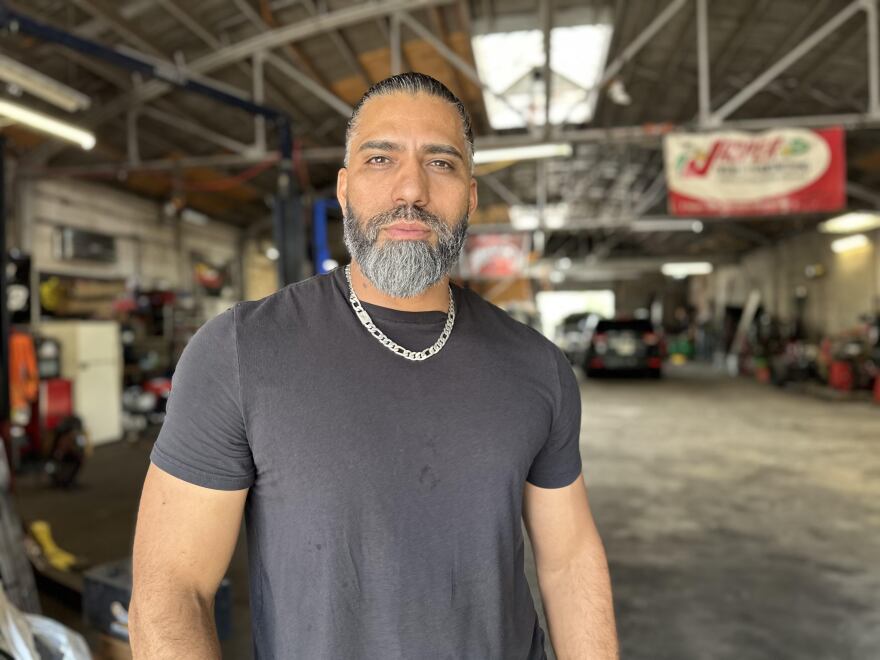
Many immigrant business owners face a threat to their livelihoods even more acute than fast-rising prices and falling sales.
At Danery Berrios’ auto repair shop in Kansas City, Kansas, business is down 40% and falling. He’s had to lay off two of his three mechanics, and fears he’ll lose the business entirely.
He needs to complete an immigration interview at the U.S. embassy in his native Honduras this summer, and doesn’t like his odds of being allowed to return to the U.S. afterwards.
“I don’t know. I mean, I don’t know. 50% chance, as 50/50,” said Berrios, in his shop. “I can do nothing about this, like I don't have control about this.”
And things may get much worse for immigrant businesses. Rodriguez said Trump’s mass deportation drive is just ramping up.
“The government immigration enforcement agencies still don't have the resources they need to do it on the scale that they propose to do it,” said Rodriguez. “That's coming.”
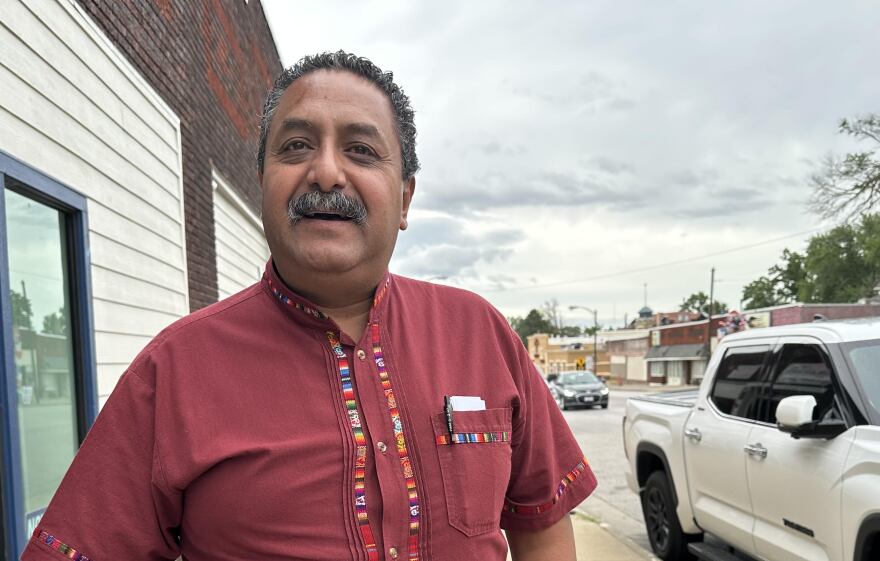
Trump’s sprawling domestic policy bill, approved this month, will spend about $170 billion curtailing immigration with a goal of deporting record numbers of people from the U.S.
All that spending is likely to stoke more fear, keeping workers and shoppers at home and starving mom-and-pop businesses.
“I believe this is worse than the pandemic,” said Galicia. “Because even though the uncertainty during the pandemic was enormous and the fear was enormous, your emotionality was in control because you didn't have anyone hunting you.”
Galicia fears that Trump’s immigration crackdown will leave long-lasting scars on Central Avenue.
“It’s this whole bunch of things happening that are destroying our way of life, destroying the stability we have built on our own, destroying the life-long investment that has been put into this place,” said Galicia.

